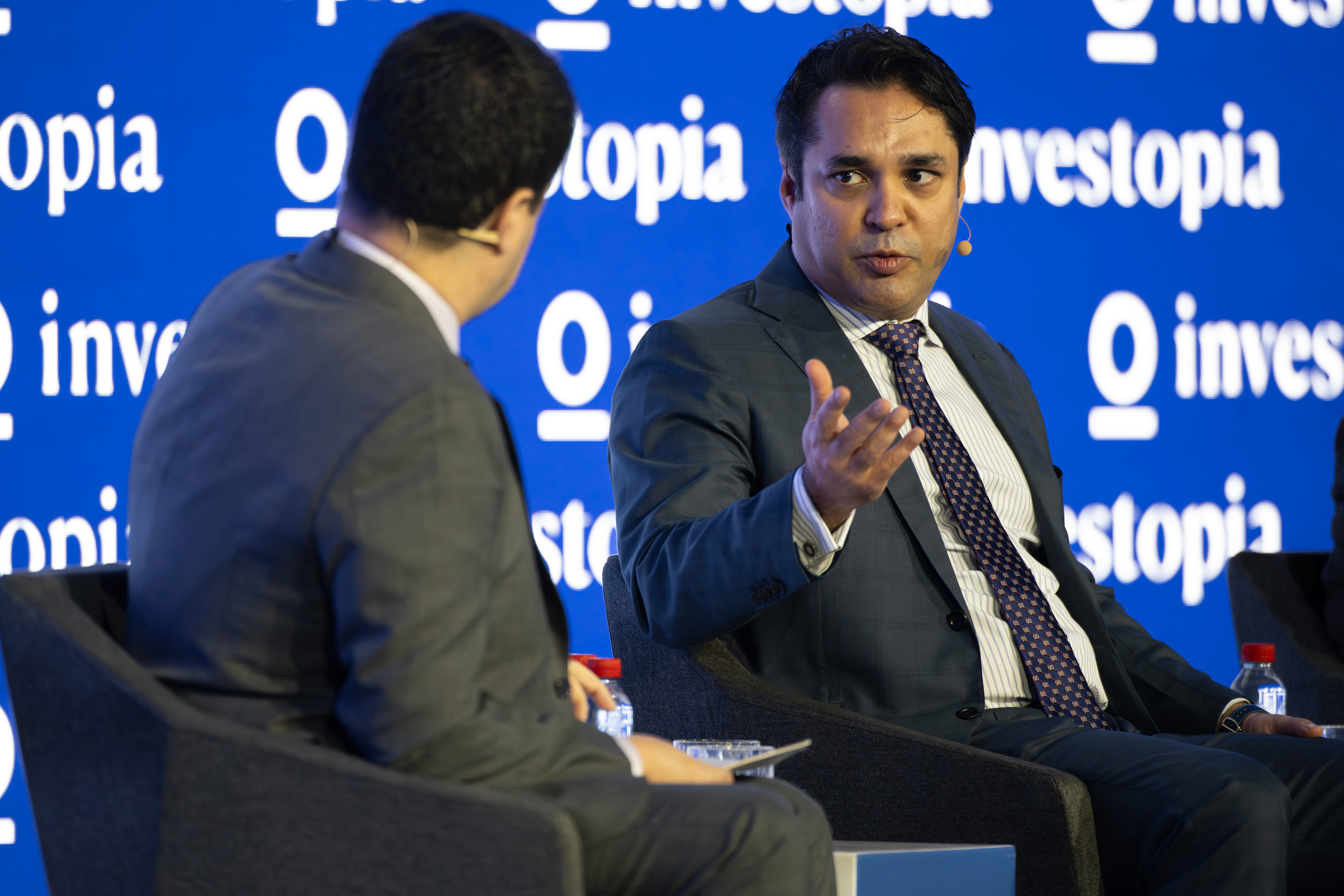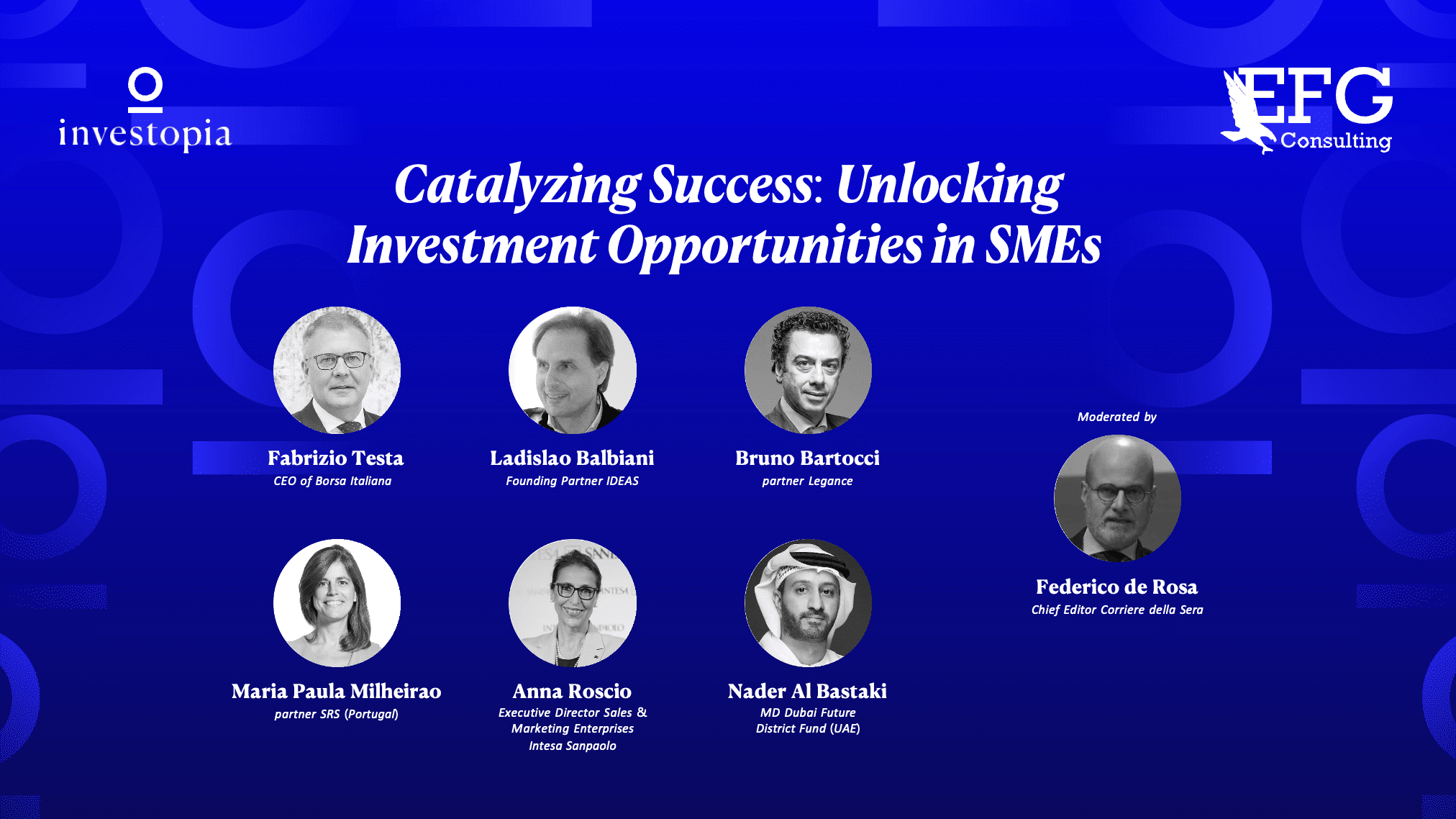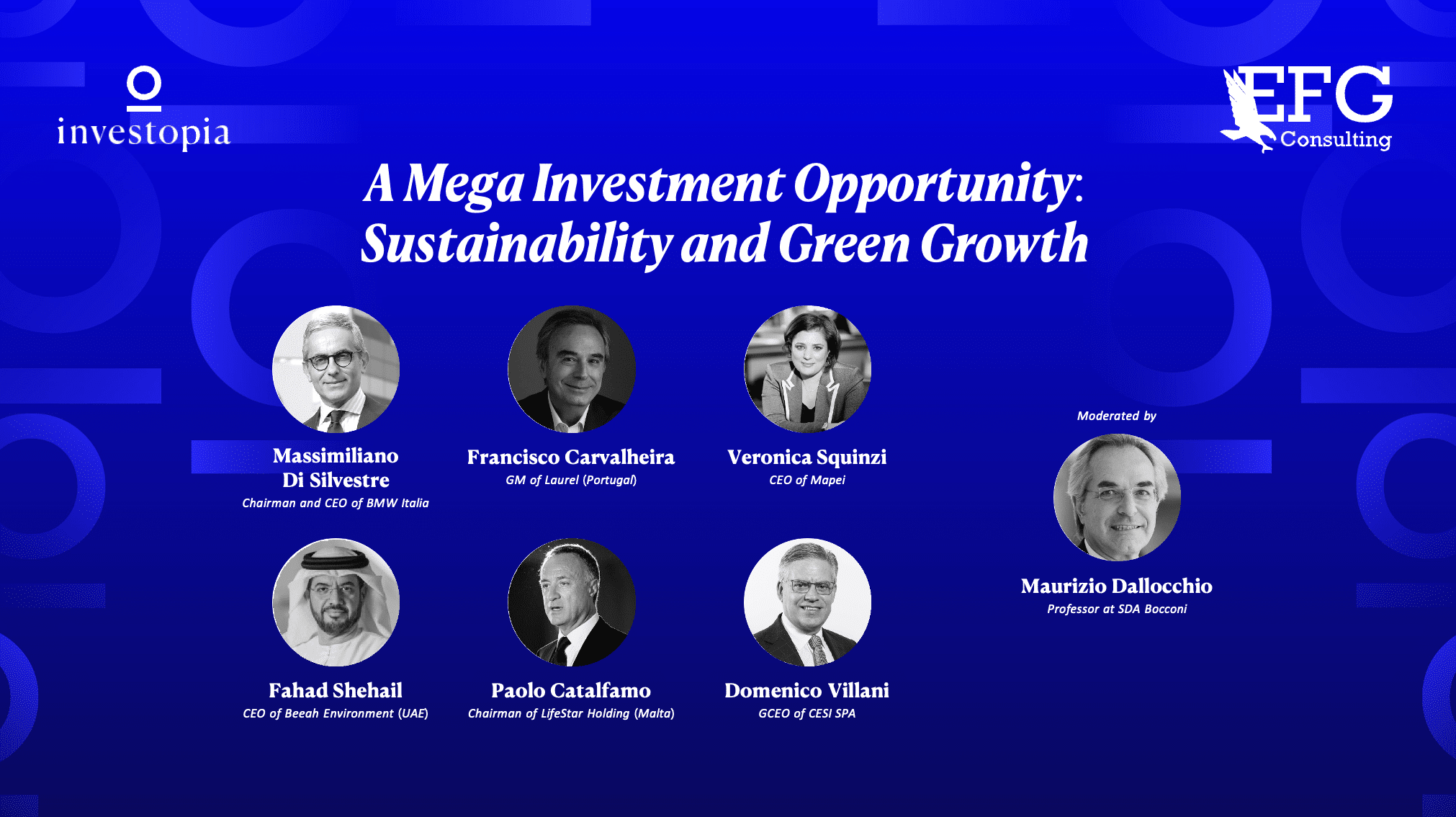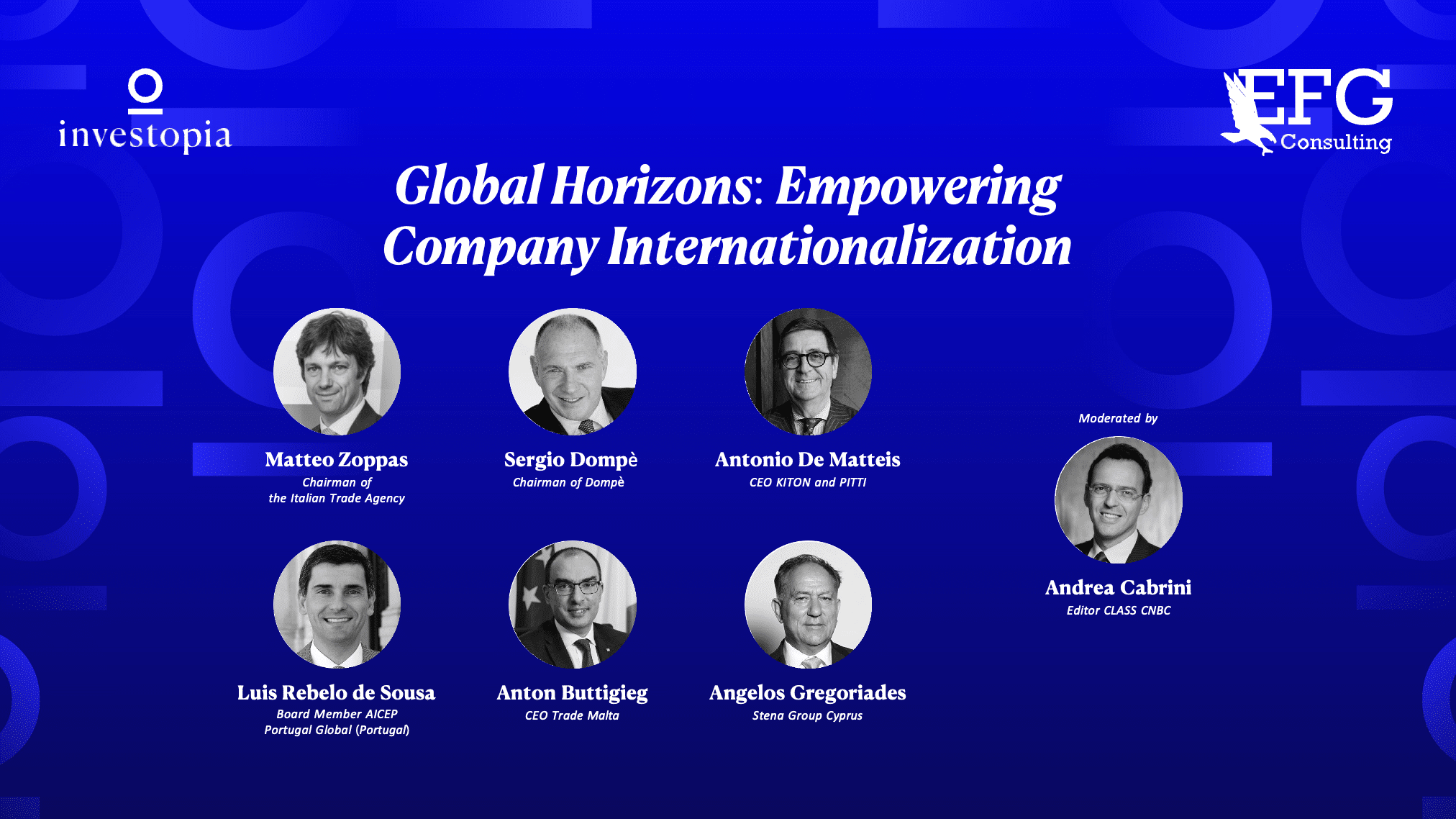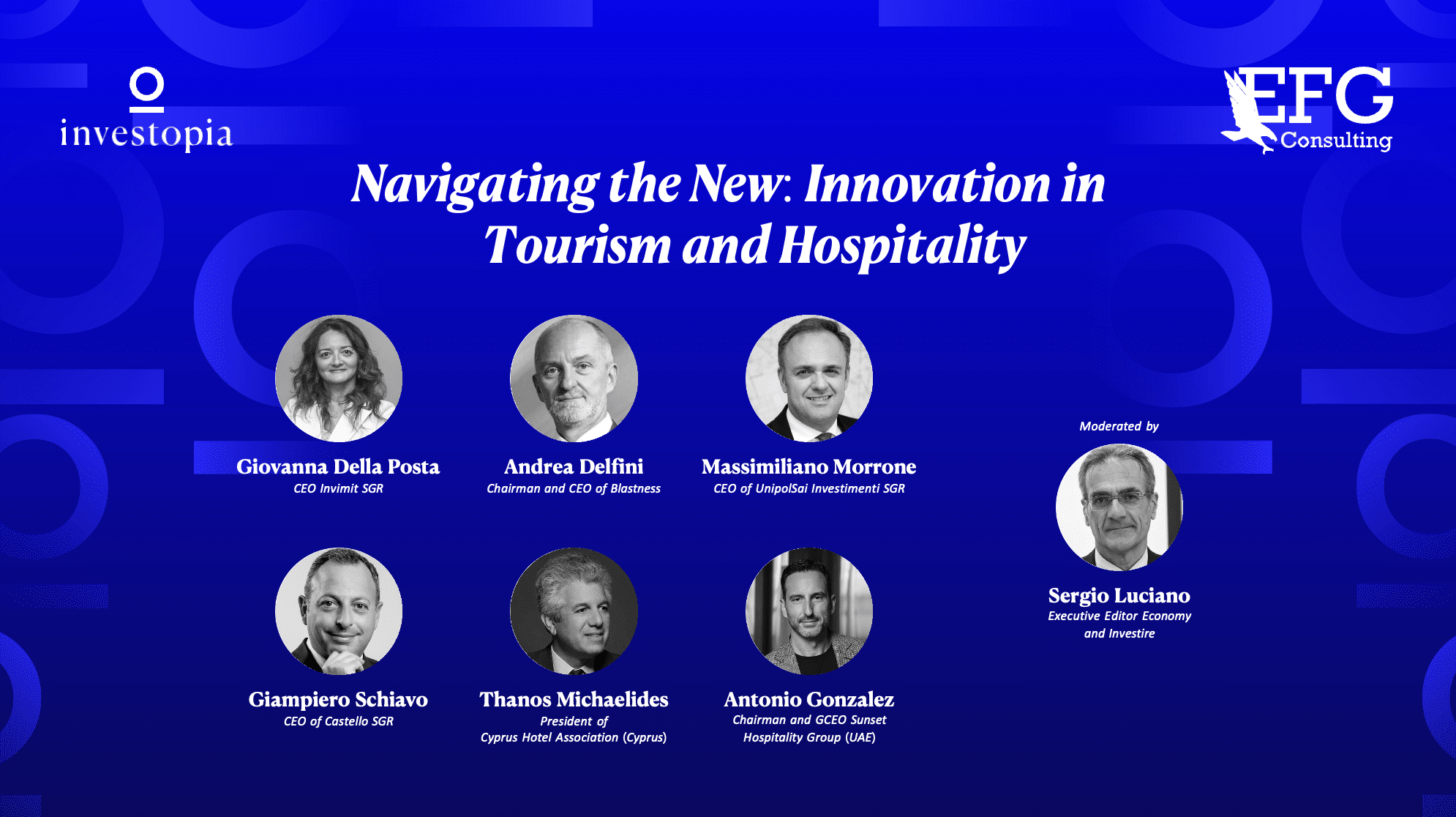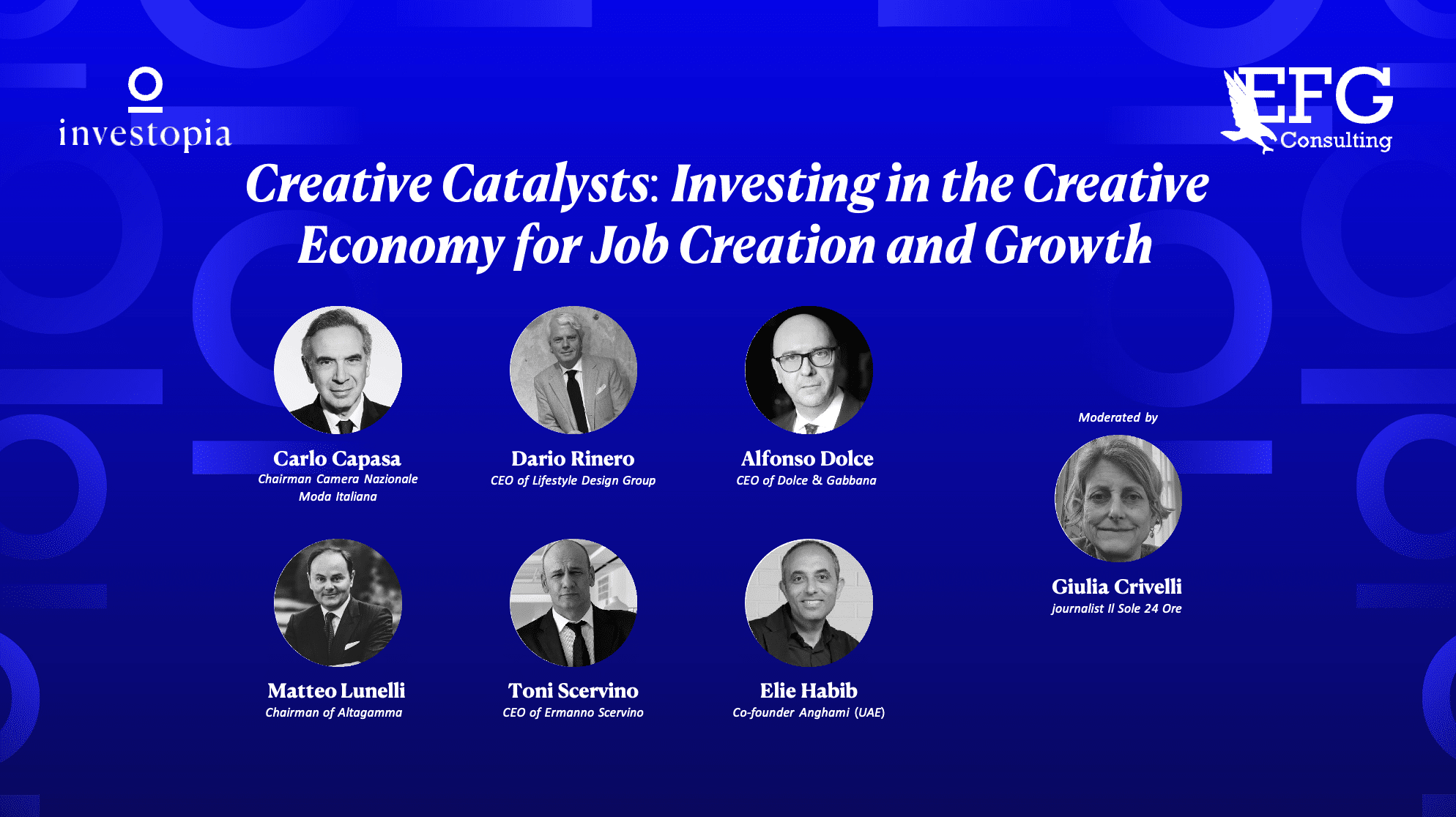Session Speakers:

Aloki Batra
CEO of FIVE Hospitality and The Pacha Group

Antonio Gonzales
Chairman & GCEO of Sunset Hospitality Group

Caroline Abramo
Founder and Chief Executive Officer of Pana Low Carbon Economy (PLC)

Hisham Ayass
Senior Financial Analyst
Share
Key Takeaways
- Sustainability presents both economic opportunities and environmental responsibilities in the hospitality sector.
- The UAE is leading the way in driving sustainability initiatives, with a focus on long-term planning and adaptation.
- Technology plays a crucial role in reducing environmental impact and enhancing efficiency within the industry.
- Collaboration between the public and private sectors is essential for creating sustainable infrastructure and policies.
- Consumer demand for greener options is driving the need for innovation and long-term investment in sustainability.
In a panel discussion on the resurgence of tourism and its implications on global hospitality, industry experts gathered in Investopia to discuss the evolving dynamics in the wake of the COVID-19 pandemic. The conversation delved into the intersection of economic opportunity and environmental responsibility within the hospitality sector.
Caroline Abramo, Founder & CEO of Pana Low Carbon Economy highlighted the significant role of real estate in global emissions. She commended the UAE’s leadership in driving sustainability initiatives, citing the Alterra groundbreaking global leaders pledge as a testament to the region’s commitment to transitioning into large-scale opportunities.
Highlighting the shift in consumer demand, Antonio Gonzales, Founder & CEO of Sunset Hospitality Group underscored the divide between experiential and transactional approaches in the hospitality sector.
While some prioritize creativity and differentiation, others focus on cost efficiency and automatization. Gonzales pointed to emerging markets like the UAE, Singapore, and Miami as exemplars of resilience post-pandemic.
For his part, Aloki Batra, CEO of Five Hospitality and the Pacha Group emphasized the need for businesses to prioritize sustainability not only for environmental reasons but also as a strategic investment for future trends. Despite initial hesitance due to perceived short-term costs, initiatives like green bonds and lower interest rates are incentivizing sustainable projects.
Discussing the role of technology, Abramo emphasized the importance of integrating tech solutions to reduce environmental impact and enhance efficiency. She highlighted advancements in energy efficiency and waste management as critical components of sustainable infrastructure.
Looking ahead, Gonzales emphasized the importance of long-term planning and adaptation to consumer trends. He emphasized the need for both public and private sectors to collaborate in creating sustainable infrastructure and policies.
This session highlighted the growing importance of sustainability in the hospitality sector. As consumers demand greener options, businesses must embrace innovative solutions and long-term planning to stay competitive in a changing landscape.


